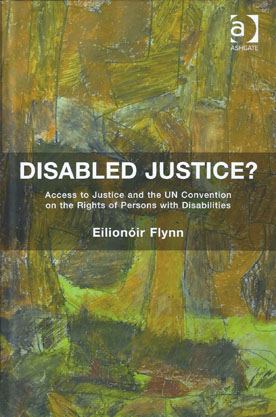
Disability offers a new lens through which to view the effectiveness of access to justice, and the inclusiveness of the justice system as a whole.
This book analyses the experience of people with disabilities through the entire justice system, from making a complaint, to investigation, and through the court/tribunal process. It also considers the participation of people with disabilities in a variety of roles in the justice system - as witness, defendant, complainant, plaintiff, lawyer, judge and juror. More broadly, it also critically examines the subtle barriers of access to justice which might exist in a given society - including barriers to grassroots disability advocacy, legal education and training, the right to vote, and the right to stand for election which may apply to people with disabilities.
The book is international and comparative in scope with a focus primarily on examples of legal practice and justice systems in common law countries. The work will be of interest to scholars working in the areas of human rights, equality and non-discrimination, disability rights activists and legal professionals who work with people with disabilities to achieve access to justice.